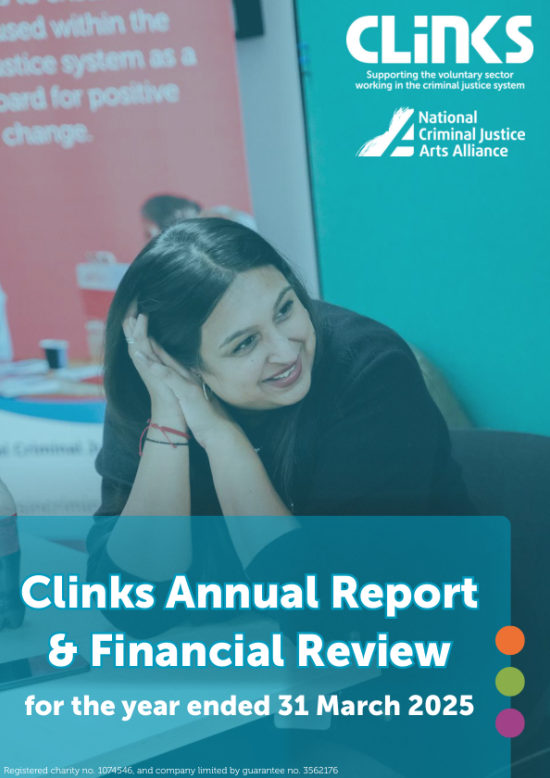For the last two years, the COVID-19 National Framework for Prison Regimes and Services has provided a centralised approach to the way prisons and the young people’s estate operated during the pandemic.
Following ministerial agreement, adult prisons and Youth Custody Service establishments in England and Wales formally exited the COVID-19 National Framework for Prison Regimes and Services on Monday 9 May. Subsequently HMPPS have now ended COVID-19 Command mode and returned to management mode. This means the current Prison COVID Gold Command team has stood down and decision-making returns locally and to the management line.
HMPPS have issued updates to partners regarding these changes which are summarised below. To ensure the sector has up to date information on these developments, and is able to share with HMPPS information about how they are impacting locally, the Reducing Reoffending Third Sector Advisory Board Special Interest Group on COVID 19 met on 17 May. The agenda covered what this meant for the management of COVID19 in establishments going forward, what regime delivery would look like in the short-medium term and what the role of central HMPPS would be in the future, in terms of ensuring communication and engagement with the voluntary sector.
I also sit on the HMPPS COVID19 Recovery Independent Advisory forum which met on 26 May and at which I raised key issues of concern raised at the Special Interest Group meeting.
This blog provides a summary of the key developments the sector needs to know and the key areas of concern that Clinks have, which we are continuing to raise on behalf of the sector.
COVID19 Management
Just as, in the community the impact of COVID19 continues to be felt despite the lifting of restrictions, the exiting of the national framework will not represent an immediate recovery for prisons. There will likely be a period of a year or more for establishments to return to any kind of normal. The management of COVID19 will be integrated into individual prison establishments risk management processes. Support with managing COVID-19 outbreaks will remain available to Governors and their teams, should it be needed via a dedicated Covid-19 National Operations Team.
However central monitoring will not be in place as it was previously. This means that the heatmap showing where there are current outbreaks and which Clinks has been able to share with voluntary organisations on request over the last two years, will no longer be produced by HMPPS. Should an outbreak occur, arrangements for reintroducing COVID-19 controls will be decided at site level, informed by health advice and local risk assessments.
It will therefore be vital that prisons communicate and engage with voluntary sector partners to ensure they are up to date about the situation in establishments that may affect their ability to deliver services.
We await a further update from HMPPS on the isolation and compartmentalisation policy on health grounds and will share this through our communication channels when it becomes available. Prison rules which provide safeguards for the use of cellular confinement have not applied during the pandemic in the interest of saving lives. However prisoners have been subject to extreme restrictions for a significant period of time with detrimental impact on mental health and wellbeing and access to services and support so there is justified concern about the continuation of this. We therefore look forward to understanding the detail of the new policy framework for extreme confinement and how the use of such measures will be monitored to ensure it is appropriately implemented at local level.
Testing
As part of the Government’s ‘Living with Covid-19' plan for England, prisons are included in the list of vulnerable settings where testing will continue under certain circumstances. From 31 May 2022 voluntary testing of staff, prisoners and visitors to prisons in England and Wales will continue in high-risk areas as determined by prison governors using risk assessments and local health advice. Risk assessments will cover both directly and non-directly employed staff.
This means that staff working in areas that have not been assessed as requiring targeted testing will no longer be asked to undertake routine asymptomatic testing. HMPPS expect that most staff will not need to routinely undertake asymptomatic testing.
Additionally, those who do not regularly work in the prison and community-based staff visiting prisons will no longer be required to take an LFD test before going into an establishment. If you attend a prison regularly and work in an area that the Governor has assessed to be high-risk, you may be asked to take a test, but this will be voluntary, and the prison will provide the test kit.
HMPPS continue to ask that if you are positive or have symptoms of Covid-19, that you follow the latest Government advice and that you do not attend the prison.
Visits testing
In the event of an outbreak, Outbreak Control Teams (OCTs) may recommend the reintroduction of visits testing for prisoners and visitors. Self-collect test kits will be provided by HMPPS at the visits centre (or suitable alternative).
Visitors aged 12 and over will be strongly encouraged to take a test on arrival, although testing will remain voluntary and entry should not be declined on the grounds of refusing to take a test. However, the visitor will not be permitted entry into the prison if the test is positive.
If a visitor declines to take a test, the prison may put in place additional mitigations as recommended by the OCT or local risk assessment, including non-contact visits, social distancing and face coverings.
HMPPS has instructed prisons to appoint a single point of contact (SPOC) to set up and manage the process including record-keeping and maintaining stock levels. Prisons have also been told that visitor testing going forwards should be supported by prison staff. Family services providers are not being asked to play a role in testing visitors.
Once a decision has been made to reintroduce visitor testing, the HMPPS testing team will liaise with the HMPPS Communications team to update individual prison pages on GOV.uk. Governors have also been asked to arrange for booking services to advise visitors of any such change, and for prisoners to be made aware.
Future regime delivery
Alongside management of COVID 19 across the estate, HMPPS have been undertaking significant work on ‘Future Regime Design’.
The message to prisons currently is very much that while there will be a period of recovery from COVID19, alongside other pressures, there is an expectation to deliver a ‘best effort regime’ to the maximum of what is possible.
The future regime design will continue to develop over the coming year while prisons are in recovery with the ambition for it to be implemented over 2023/24.
As part of this a new definition of purposeful activity has been developed which rather than defining specific activities as purposeful, instead shifts the emphasis towards recognising that what is purposeful will depend upon the individual and needs to be more sufficiently tailored to their needs.
A tiered regime model is also in development which, while not finalised, will likely include core requirements for all prisoners e.g. showers, exercise and additional requirements which will provide opportunities for additional activities and services within regimes that can be tailored to an individuals needs. The aim is for the additional requirements to be viewed as importantly as the core with a recognition that it will be a combination of both that will meet the needs of individuals.
As this work develops it is vital that the knowledge and expertise of the voluntary sector is drawn upon and we are in discussion with HMPPS to agree how this can best be done.
Communication and engagement between prisons and the voluntary sector
Over the last two years Clinks have worked with HMPPS to develop mechanisms for voluntary organisations to receive information about regime delivery and to feedback concerns about the impact of that delivery on people in prisons ability to access vital services and support.
This includes distributing updates from HMPPS for partners. The full HMPPS update regarding the exiting of the national framework, including further detail on the COVID19 control measures in place in prisons, is available to voluntary organisations by emailing COVID19@clinks.org
We are concerned that as we exit the national framework and move towards local regime management the avenues for communication and engagement that we have worked hard to establish could be lost. We are pleased to have been informed by HMPPS that guidance has been issued to prisons regarding the need to communicate with partners and we will keep a close eye on how this is reflected locally. If you would like to share any information about your own experiences of this please email COVID19@clinks.org
What's new
Blogs
Anne Fox CEO of Clinks to stand down after a decade of service
Latest on X
The role is for a leader from an organisation focused on racially minoritised people, with expertise in service delivery, policy, advocacy, or related areas in criminal justice. Racial disparities are present at every CJS stage. This role ensures these voices are central in shaping policy to help address and eradicate them. Apply by Mon 18 Nov, 10am. More info: https://www.clinks.org/voluntary-community-sector/vacancies/15566 #CriminalJustice #RR3 #RacialEquity

